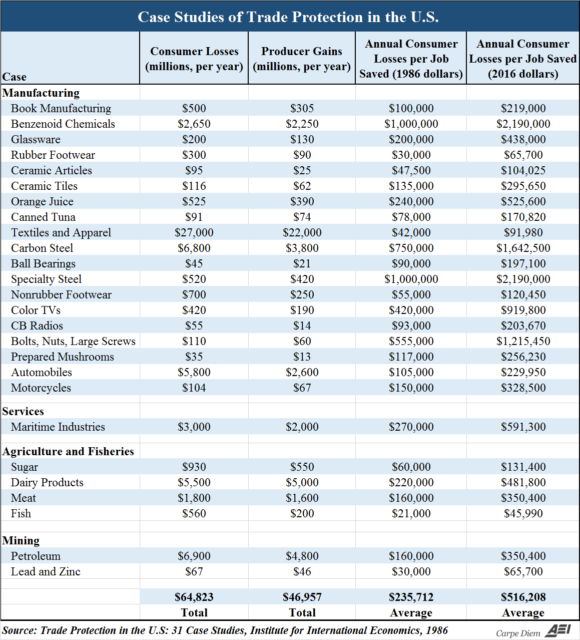Mark Perry provides some context to the claim that protectionist policies can save American jobs:
According to Team Trump’s website, we’re told that “blue-collar towns and cities have watched their factories close and good-paying jobs move overseas, while Americans face a mounting trade deficit and a devastated manufacturing base. By fighting for fair but tough trade deals, we can bring jobs back to America’s shores, increase wages, and support U.S. manufacturing.”
Actually, it’s been capital investments in labor-saving technologies like robotics and increasing worker productivity that have led to the large majority of US factory job losses, not trade or outsourcing, as I documented recently here. And there’s been no devastation of America’s manufacturing base; to the contrary, real US manufacturing output has reached all-time high levels in recent quarters.
What’s Trump’s solution to the loss of US manufacturing jobs? America’s “first authentic protectionist to win the White House since the 1920s” has outlined a series of protectionist trade measures including tariffs (30-40-50%), “tougher trade deals” (likely trade deals to protect US manufacturers from foreign competition), “Buy American” policies, and border adjustment taxes, among other strategies to “save American jobs.”
Here’s a relevant question to ask: How have protectionist trade policies in the past worked out for the US economy and how expensive is it to save American jobs with the protectionist trade policies Trump is proposing? We can find some answers to those questions in a Federal Reserve Bank of St. Louis research article published in 1988 by three economists “Protectionist Trade Policies: A Survey of Theory, Evidence and Rationale,” which presented a summary of the empirical evidence on trade protectionism from the 1986 book published by the Institute for International Economics Trade Protection in the United States: 31 Case Studies. Even though the research and empirical results are from the 1980s, this article and book provide useful empirical evidence on the costs of protectionism to bring some much-needed sanity to the debate on trade policy to counterbalance the favorable treatment being given to protectionism these days.




